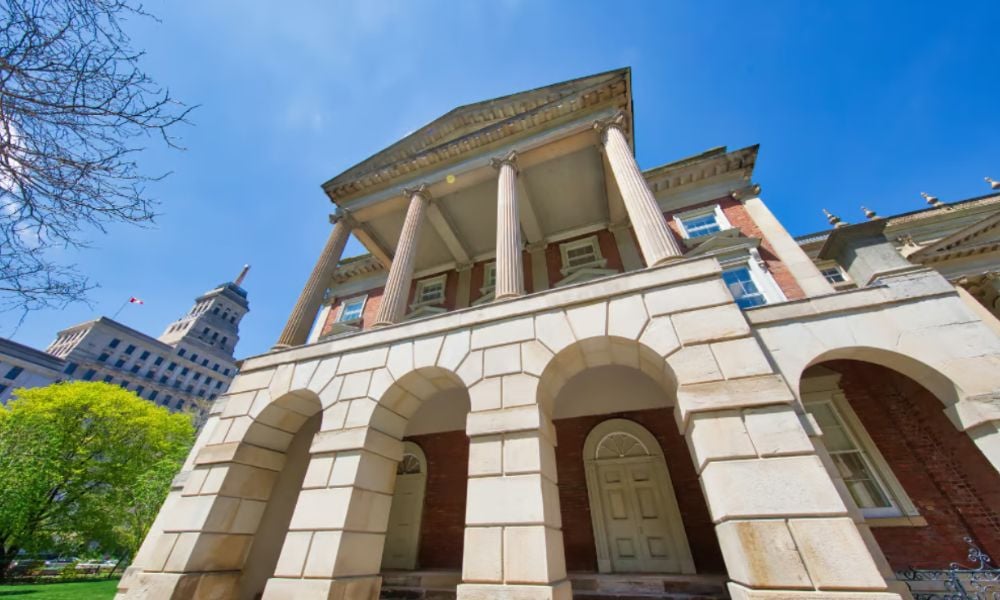
Ruling finds judge entitled to deem rates charged by injured man's counsel fair and reasonable

The Ontario Court of Appeal has dismissed an appeal of a trial judgment awarding over $1.1 million in costs and pre-judgment and post-judgment interest to a party who suffered very serious injuries due to a motor vehicle accident.
In July 2016, the plaintiff was driving a motorcycle and could not avoid colliding with the vehicle of one of the defendants. The plaintiff asked for $2 million in damages for the injuries caused by the collision.
In October 2023, the verdict of a Hamilton civil jury awarded him damages of $1,072,440.42, an amount that exceeded the plaintiff’s and the defendants’ offers to settle. The plaintiff requested costs, prejudgment interest, and post-judgment interest.
In Pye v. Di Trapani, 2024 ONSC 2265, a trial judge of the Ontario Superior Court of Justice ordered the defendants to pay $1,104,557.50 to Smitiuch Injury Law. This total amount consisted of:
The award included substantial indemnity costs from when the plaintiff offered to settle seven months before the trial started.
The judge addressed the factors in r. 57.01 of Ontario’s Rules of Civil Procedure, RRO 1990, Reg 194, and the applicable case law. He found the plaintiff reasonably entitled to a cost award roughly equivalent to the damages award, exceeding his settlement offer.
The judge deemed the hourly rates the plaintiff’s legal team charged reasonable. The judge noted that the effectiveness of the plaintiff’s counsel outweighed their years at the bar in the circumstances. The judge explained that the three lawyers for the plaintiff:
The defendants appealed the trial judge’s costs and interest order. In Pye v. Di Trapani, 2025 ONCA 355, the Court of Appeal for Ontario rejected this appeal.
First, the appeal court disagreed with the defendants’ argument that the judge committed an error by accepting the plaintiff’s fees and disbursements without sufficient questioning.
The appeal court ruled that the judge appropriately focused on the overall reasonableness of the plaintiff’s cost claim and adequately explained why he deemed the amount requested reasonable.
The appeal court noted that the judge did not need to review every item of fees claimed for specific tasks or second-guess the amounts paid for certain disbursements.
The defendants’ second argument was that the judge failed to apply the principles of reasonableness and proportionality in determining the cost award. The defendants challenged the hourly rates charged by the plaintiff’s lawyers and the cost award’s proportionality in relation to the damages award.
The appeal court disagreed and saw no reason to interfere with the judge’s assessment of appropriate costs. The appeal court found that the judge explained in detail why he considered the hourly rates charged by the plaintiff’s legal team fair and reasonable.
The appeal court refused to find the judge’s cost award unreasonable because it was roughly the same amount as the jury’s damages award. The court noted that the judge was clearly aware of the issues that the defendants were raising on appeal.
Third, the defendants argued that the judge erred in exercising his discretion to award prejudgment interest at a three-percent rate, rather than the 0.8 percent presumptive rate under Ontario’s Courts of Justice Act, 1990.
The defendants added that the judge failed to consider the shifts in the inflation and interest rates that occurred within the one-year time span when the trial was supposed to move forward, but did not because of two adjournments.
The appeal court saw no error in the judge’s exercise of his discretion under s. 130 of the Courts of Justice Act. The appeal court found the judge justified in fixing the prejudgment interest rate as he did. The appeal court noted that the judge addressed and rejected the arguments submitted by the defendants and repeated on appeal.